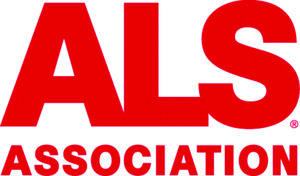The ALS Association and AAN Announce 2013 Sheila Essey Award for ALS Research
Rosa Rademakers, Ph.D. and Bryan Traynor, M.D., Ph.D. Receive Essey Award
WASHINGTON, March 12, 2013 /PRNewswire-USNewswire/ -- On Tuesday, March 19, The ALS Association and the American Academy of Neurology (AAN) will present the 2013 Sheila Essey Award for ALS Research at AAN's annual meeting in San Diego, California to Rosa Rademakers, Ph.D. and Bryan Traynor, M.D. Ph.D. These two scientists independently identified a mutation in the C9orf72 gene, on Chromosome 9, that causes ALS, a landmark finding in ALS research
In 1996, The ALS Association and the AAN inaugurated the Sheila Essey Award for ALS Research to acknowledge and honor an individual actively engaged in ALS research who is making significant contributions in research for the cause, treatment, prevention or cure for ALS. The award is made possible through the generosity of the Essey Family Fund, in memory of Sheila Essey, who battled ALS for ten years and died from the disease in 2004. Past recipients have used the funds to continue ALS research or to support promising young scientists on their research teams.
ALS (commonly known as Lou Gehrig's Disease) is a progressive neurodegenerative disease that affects nerve cells in the brain and the spinal cord. Eventually, people with ALS lose the ability to initiate and control muscle movement, which often leads to total paralysis and death within two to five years of diagnosis. For unknown reasons, veterans are twice as likely to develop ALS as the general population. There is no cure, and only one drug approved by the U.S. Food and Drug Administration modestly extends survival.
"I am extremely excited that these investigators have been recognized with the Sheila Essey Award for this pivotal finding and their dedication to ALS research," said Dr. Lucie Bruijn, Ph.D., Chief Scientist for The ALS Association. "The identification of C9orf72 will significantly impact the field as we begin to understand more about the consequence of these changes for the disease process, aid our understanding of FTD and ALS, potentially provide a diagnostic tool, and enable the development of new therapeutic approaches."
The C9orf72 mutation is the most common known cause of familial and sporadic ALS and frontotemporal dementia (FTD) and has transformed the understanding of these diseases. It is the most significant genetic discovery in the field since the 1993 identification superoxide dismutase 1 (SOD1), the first gene for ALS. C9orf72 mutations account for up to 40 percent of all familial cases of ALS, and up to 7 percent of sporadic ALS, making it the most common cause of the disease. It is also responsible for approximately 50 percent of cases of familial FTD.
Although linkage to chromosome 9 had been reported in 2006 in a handful of families with ALS and FTD, the causative gene mutation remained elusive despite the best efforts of many leading laboratories. In retrospect, it is clear that the difficulty arose because of the highly repetitive nature of the mutation.
Dr. Rademakers' lab collaborated with researchers across North America to track down the gene in a multigenerational family. Rademakers has followed this up with a number of reports on the clinical, pathologic, and pathogenic consequences of the mutation. "I am very excited that the work of my research group on the chromosome 9p discovery is being recognized with the prestigious Sheila Essey Award for ALS Research. It's a real honor," she said. Dr. Rademakers is Associate Professor of Neuroscience, College of Medicine, Mayo Clinic, Jacksonville, Fla.
Dr. Traynor's lab studied patients with familial ALS in the Finnish population. His laboratory published the first genome-wide association study of ALS in 2007, and was the first to identify an association signal for ALS on the short arm of chromosome 9 in the Finnish founder population in 2010. "I am truly honored to receive the prestigious 2013 Sheila Essey award for ALS research," he said. "This prize represents welcome recognition of my team and my collaborators, without whom this project would not have been successful. We continue to work together to understand the mechanisms by which the C9orf72 repeat expansion leads to neurodegeneration and to translate these findings back to the bedside to help the patients suffering from this terrible disease." He is a neurologist and an Investigator at the National Institute on Aging (NIA), where he has been the Chief of the Neuromuscular Diseases Research Unit at the Laboratory of Neurogenetics since 2009.
About The ALS Association
The ALS Association is the only national non-profit organization fighting Lou Gehrig's Disease on every front. By leading the way in global research, providing assistance for people with ALS through a nationwide network of chapters, coordinating multidisciplinary care through certified clinical care centers, and fostering government partnerships, The Association builds hope and enhances quality of life while aggressively searching for new treatments and a cure. For more information about The ALS Association, visit our website at www.alsa.org.
SOURCE The ALS Association
WANT YOUR COMPANY'S NEWS FEATURED ON PRNEWSWIRE.COM?
Newsrooms &
Influencers
Digital Media
Outlets
Journalists
Opted In





Share this article